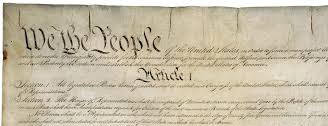On Thursday, April 25, the Supreme Court heard arguments over whether or not Trump is entitled to presidential immunity for his actions in the weeks following the 2020 election. Trump is charged with having tried to interfere with the election results to illegitimately keep himself in office as president, and the trial would have started back in March were it not for this immunity appeal.
It was clear from the questions that the justices asked the lawyers that there is not just one question involved, but rather, there are two. One is whether this particular president is entitled to immunity for this particular set of actions. The other is the broader question of what degree of immunity to criminal prosecution does a president have for actions committed while in office. The first question should have been fairly easy to answer, but the conservative justices with the possible exception of Amy Coney Barrett seem intent on dealing with the second, broader question, in a way that may lead to the Court sending the case back to the DC Circuit Court of Appeals to sort a few things out.
Back when the DC Circuit Court of Appeals issued its ruling, I wondered whether something might be missing. The main thrust of their opinion was a simple one: that the president is not above the law. So far so good, and perhaps it makes sense since Trump was calling for complete “blanket immunity,” which was what the circuit court said he’s not entitled to, but there was another point that I was looking for in their ruling, a point that had been made in some other rulings in civil suits against Trump for his actions surrounding the January 6th attack on the Capitol. That point was this: Even if the president is entitled to immunity for official actions taken as part of performing official duties as president, Trump’s actions in response to the election don’t count as official actions, because trying to keep oneself in power has nothing to do with any official duties of the president. Trying to stay in power is an action performed as a candidate, not as the president. Other court rulings have spelled out this point; the DC Circuit decision did not.
Now, the Supreme Court is perfectly capable of making that distinction in the ruling it hands down now, and maybe the Court will do that. But the conservative justices on the Court have shown through their actions so far that they don’t at all mind acting in a way that will delay the start of the trial until after the election, even if that means Trump gets back into power and calls off the trial completely–which he can do if he wins. So the justices may well send the case back to the DC Circuit with a homework assignment, to make a distinction between official action and private action, and make a determination as to which category Trump’s behavior fits into. In other words, the Supreme Court may instruct the Circuit Court to do what I, personally, was wondering why they didn’t do, or at least didn’t do clearly enough, the first time they got the case.
Full text of circuit court opinion, February 6, 2024



